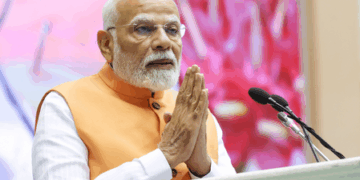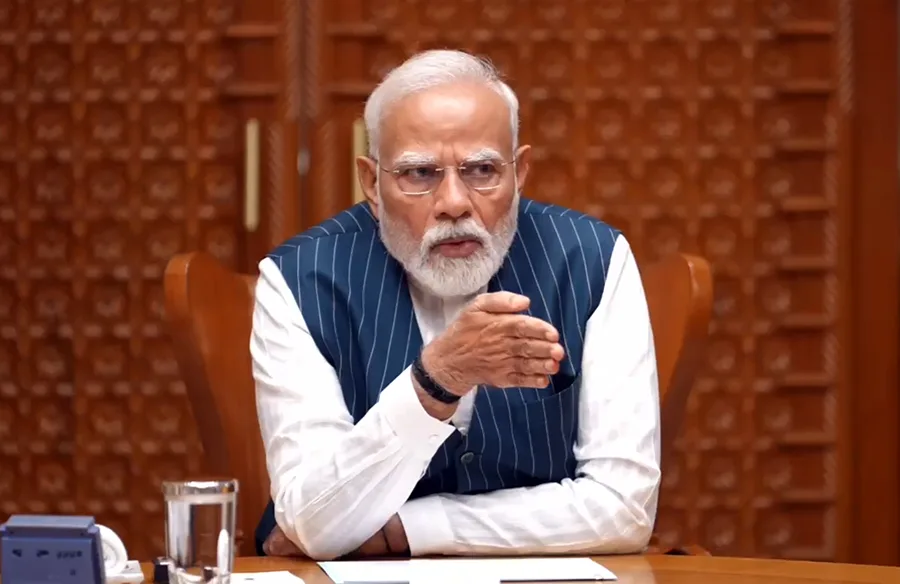Chandigarh: With compensation to states for loss of revenue from the implementation of GST ending this month, states ruled by non-NDA parties have started clamouring for changing the revenue sharing formula to protect their revenues.
Chhattisgarh Finance Minister T S Singh Deo said the present formula for equally splitting revenues from the Goods and Services Tax (GST) between the Centre and states should be changed, with a larger share of 70-80 per cent being given to states.
In a letter to Union Finance Minister Nirmala Sitharaman, who is chairing the GST Council meeting here, Deo said his state has suffered a huge revenue loss under the GST regime mainly because mining and manufacturing states have suffered the most under GST, which is a consumption-based tax.
“… We are presenting the proposal in the GST Council to continue with the 14 per cent protected revenue provision. If the protective revenue provision is not continued then the 50% formula for CGST & SGST should be changed to SGST 80 -70% & CGST 20-30%,” said Deo, who is unable to attend the meeting due to Covid-19 infection.
Otherwise, the present compensation mechanism, he said, should continue for another five years.
Currently, revenue collected from the Goods and Services Tax is shared equally between the Centre and states. The collection from cess levied on luxury, demerit and sin goods is used entirely to compensate the states for revenue loss due to GST implementation.
The two-day GST Council meeting, which is currently underway in Chandigarh, is slated to discuss the compensation mechanism after the five-year period, which was decided at the time of GST rollout, ends in June 2022.
GST was introduced on July 1, 2017, and states were assured of compensation for the revenue loss till June 2022, arising on account of GST rollout.
Though states’ protected revenue has been growing at 14 per cent compounded growth, the cess collection did not increase at the same proportion, and COVID-19 further increased the gap between protected revenue and the actual revenue receipt including reduction in cess collection.
In order to meet the resource gap of the states due to short release of compensation, the Centre borrowed and released Rs 1.1 lakh crore in 2020-21 and Rs 1.59 lakh crore in 2021-22 as back-to-back loans to meet a part of the shortfall in cess collection.
As per data on revenue growth collated for the Council meeting, only five out of 31 states/UTs — Arunachal Pradesh, Manipur, Mizoram, Nagaland, and Sikkim — registered a revenue growth higher than the protected revenue rate for states under GST in financial year 2021-22.
Puducherry, Punjab, Uttarakhand and Himachal Pradesh have recorded the highest revenue gap between the protected revenue and post-settlement gross state GST revenue in 2021-22.
In the letter to Sitharaman, Deo said, Chhattisgarh has suffered a revenue loss of Rs 4,127 crore in the last fiscal, Rs 3,620 crore in 2020-21, Rs 3,176 crore in 2019-20 and Rs 2,786 crore in 2018-19.
“The most pertinent issue being brought to her notice is the ending of the provision of 14% protected revenue due on 30th June. Requested an extension of 5 years on this to protect the states from severe revenue loss and let them function as an effective federal unit of India,” Deo tweeted.
Recalling the recent Supreme Court judgement regarding power of GST Council, Deo said: “Unless we in the GST Council as its members unilaterally ensure the financial stability through rational revenue realisation for each and every State and Union Territory in India then the very concept for which the GST Council was put in place may appear to be untenable”.
The Supreme Court, in the Mohit Minerals Ocean Freight case, had ruled that the recommendations of the GST Council are not binding and only have persuasive value. It held that Parliament and state legislatures can equally legislate on GST.







